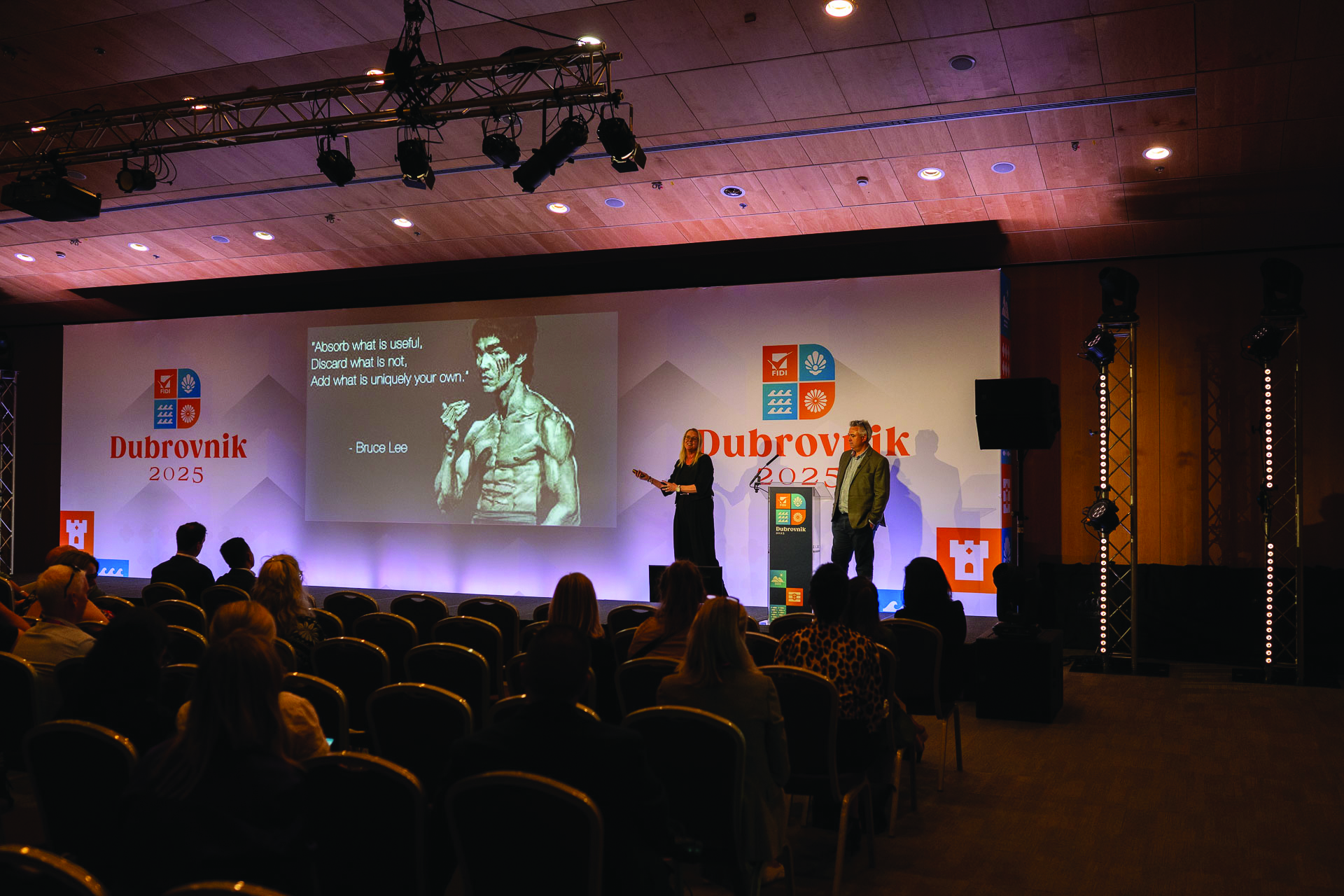At the 2025 FIDI Conference, cybersecurity, global trade uncertainty, and succession planning took center stage. Keynote speaker Jo Dalton reminded attendees, “Everything is hackable,” emphasising the need for digital hygiene and cultural awareness. Panelists discussed the urgency of diversification, resilience in the face of geopolitical shifts, and preparing the next generation of leaders. The takeaway? Agility and foresight are essential for navigating an increasingly complex world.
This year’s keynote speech and panel sessions dealt with the growing cybersecurity threats to businesses, the uncertain international trading environment, and how to plan well for succession within a company
Cybersecurity expert Jo Dalton, Head of Pen Test Partnerships, Europe, started the conference business sessions with a sobering look at the growing threat of business security – physical and digital – and advice for Affiliates for handling the increasing risks.
Since COVID, remote working has blurred lines between office and home digital environments, exposing businesses and creating new vulnerabilities, she said – which has been compounded by more smart devices connected to the internet. Criminals will often use human behaviour as much as online access to attack a business.
‘If I can literally walk into your building and plug into your endpoint, I don’t need to break through your firewall,’ she said.
A new generation of smart devices, including kettles, televisions, or vending machines, can be major weaknesses, allowing unauthorised access into personal and corporate IT networks, said Dalton. ‘The kettle… it sits in your house, connects to your mobile app. Unfortunately, you could connect to this device and access your Wi-Fi key easily,’ said Dalton.
The devices can give attackers unauthorised access to home networks, intercept personal data, and even use open-source tools to map vulnerable devices across cities. The speaker demonstrated how she could locate dozens of insecure kettles in London using a free online service.
Smart locks and connected security devices often lack even the most basic encryption, too.
Dalton highlighted how attackers could hijack a car using a combination of insecure APIs and cloned mobile apps. ‘You could listen silently to the people within the vehicle,’ she said, which could be a big risk for high-profile or high-net-worth people.
‘Everything is hackable. It’s about the level of compromise,’ she said. While the threats are real and growing, with the right mindset and practices, mobility and logistics companies can dramatically reduce their exposure.
Mobility and logistics sector technology such as vehicle trackers and diagnostics systems can also be compromised, she said. Combining publicly available ship tracking data with on-board devices can also allow hackers to track vulnerable ships in real time.
Dalton suggested some simple actions attendees could take to mitigate the risks, including:
● Change default passwords immediately – and don’t trust a device that won’t let you.
● Check your supply chain providers for their own digital security – beyond just service-level agreements.
● Train staff to be aware of social engineering, where criminals pretend to be a third party: ‘If you don’t know them, challenge them.’
She said security is not just about firewalls and encryption – it is also culture, awareness, and preparation – and encouraged attendees to think of cybersecurity like physical health: ‘It’s about habits, hygiene, and awareness.’

